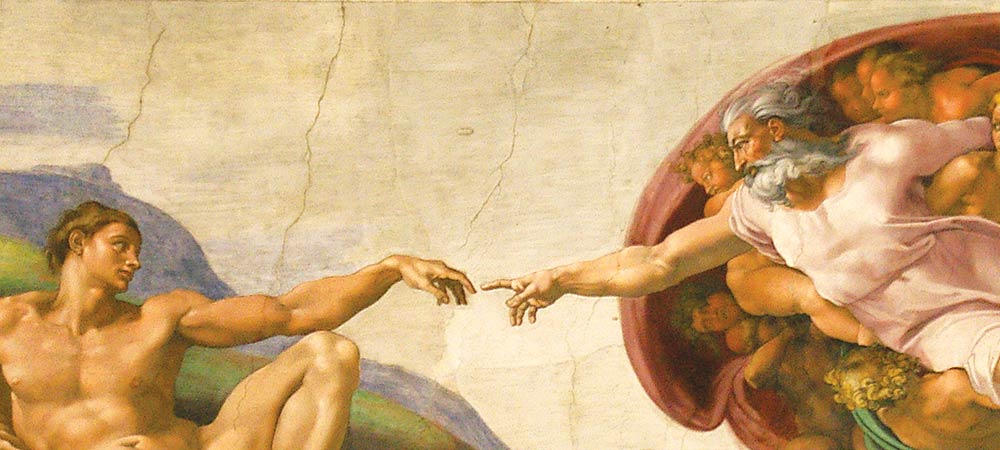
An excerpt from God’s Message to the World: You’ve Got Me All Wrong
It’s not a small thing to be wrong about God.
And if nearly everyone on the planet is wrong about God, it’s really not a small thing.
If nearly everyone on the planet has mistaken notions about God, then nearly everything that everyone on the planet is doing will not work the way it was intended. This is because the basis of so much of what they’re doing is found in so many of their beliefs about God.
Think not?
Think again.
Nearly all of civilization’s modern laws emerged from the early rules and laws of some faith tradition. Nearly all of humanity’s moral codes derive from the mandates of a religion. Nearly every political movement and economic theory is based on ideas of justice, right-and-wrong, and basic fairness first espoused by spiritual teachers.
Even those who don’t believe in God are impacted and guided by many of the fundamental principles placed into the Cultural Story by those who do.
And a striking number of the personal decisions made by billions of individuals across the globe are made within the context of what they believe to be the purpose of life, what they believe happens when this life is over, what they believe about God, and about what God wants.
So it’s not a small thing to be wrong about God.
Proposition: Not one of the systems we have put into place to make life better on this planet is working.
Wait. It’s worse.
Not only have the systems we have put into place failed to produce the outcomes for which they were intended — they are actually producing exactly the opposite.
I have made this point before, in previous books. I believe it is worth repeating, with emphasis.
Our political systems are actually increasing disagreement and disarray. Our economic systems are actually increasing poverty and the gulf between the rich and the poor. Our ecological systems are actually increasing environmental degradation.
Our health care systems are actually increasing inequality of access to modern medicines and health care services. Our educational systems are actually increasing the knowledge gap. Our social systems are actually increasing disparity, disharmony, and injustice.
And, perhaps saddest of all, our spiritual systems are actually increasing righteousness, intolerance, anger, hatred, violence, and war.
If the improvement of human life upon the earth were a laboratory experiment, it would have long ago been considered an abject failure.
Indeed, an appalling disaster.
Not everyone agrees. There are those who believe that humanity is evolving to higher and higher levels of sophistication and achievement, producing a better and better quality of life for all the members of our species.
It is possible that they would not, however, be among the 842 million people (one in eight in the world) who do not have enough to eat. It is certain that they would not be the parents of the over 650 children who die of starvation every hour.
They would presumably not be among the 20.9 million women and children who are bought and sold into commercial sexual servitude every year.
They would also, one imagines, not be among the over three billion people who live on less than $2.50 a day, or the billions who have no access to health care. (Some 19,000 children die each day from preventable health issues, such as malaria, diarrhea and pneumonia.)
They would probably also not be among the 1.7 billion people who lack clean water, or the 2.6 billion without basic sanitation, or the 1.6 billion people — a quarter of humanity — who live without electricity.
That’s right. In the first quarter of the 21st century, 2.6 billion people live without toilets, and 1.6 billion without electricity.
How is this possible? you might ask. And that is a very good question.
It is an especially good question given that humanity imagines itself to be a “civilized” species. To the people in the above categories, the “civilization of Civilization” has not even begun.
A planet where 5 percent of the population owns or controls 95 percent of the wealth and resources — and where most of that 5 percent think this is perfectly okay, even as unconscionable numbers languish in lack and suffering — would not seem to be a planet on which a great deal of humanitarian advancement has been achieved.
All of this is possible because of the collective values of those people who can do something about it. And where do those values come from? I suggest they derive in large part from the well-intentioned, but mistaken, beliefs about God held by many human beings — including those who do not believe in God at all.
Does anybody care that our species has been such a failure — or why?
Does anybody imagine it has not been?
Does anybody want to know how this whole situation can be turned around in the blink of an eye?
Does anyone want to know how his or her own personal life can be changed for the better with the embracing of a single idea?
Do you? Do you want to know?












